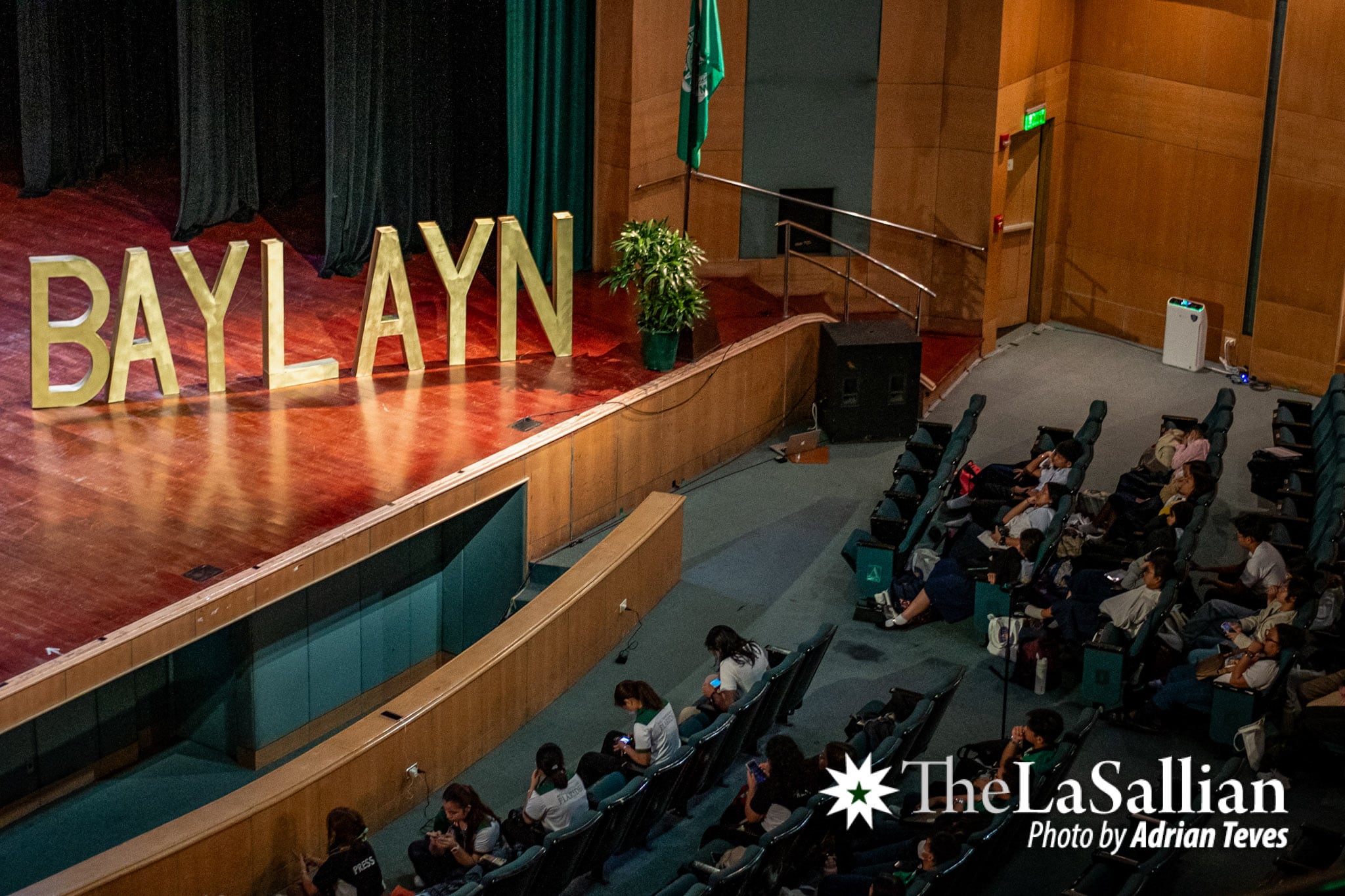This year’s Para sa Bayan at Lasalyano (BayLayn), an annual journalism convention by Ang Pahayagang Plaridel, discussed the prevalence of sensational journalism and its deliberate role in manipulating the truth by engaging the emotions of readers. Through a series of talks, workshops, and activities last April 6 in the Manila Campus, the event delved into its theme, “Sensasyonalismo sa Pamamahayag: Etika at Limitasyon ng Paghahatid ng Balita,” and urged young journalists to be agents of ethical journalism.
Participants from various schools joined workshops led by various media practitioners, who gave back-to-basics lectures on their respective journalism categories and insights on journalistic ethics and sensationalized journalism.

School Paper Adviser Jerwin Tierra of Talipan National High School’s student publication Ang Talipeño opined that sensational stories divide public opinion, warning journalists that it would lessen the credibility of and trust in news outlets.
“Basic structure ang pinakatamang principle—‘yun ang dapat maging sapat lamang na hawak natin to engage our readers kasi the information, the details, and the truth that we have is engaging enough,” Tierra proposed as a way to battle against sensationalizing news.
(…is the correct principle, that is what should suffice enough…)
Balancing creativity with facts is what Philippine Star Content Producer Carlos Miguel Libosada reminded the campus journalists. Libosada cautioned that a lot of writers tend to sacrifice accuracy for the sake of creativity when writing feature articles.
“Despite the furnishments [or] embellishments, the truth should always be at the center stage,” Libosada said.
Managing Editor of the Manila Standard Joyce Pañares started BayLayn’s afternoon talks by expressing her dismay with the prevalence in Philippine media of yellow journalism—a market-driven tactic in media outlets through the use of exaggerated, scandalous, or fear-mongering articles to misconstrue facts.
“This kind of information disorder feeds on sensational news kasi the more sensational, the more na napapa-click tayo, the more na naniniwala tayo na itong balitang ito ay tama,” Pañares expounded.
(…we are led to believe that this content is true.)
With sensational narratives being used to exploit the public for profit, she called on campus journalists to stand against these greedy practices and to remind themselves of their duty to put their communities at the forefront of their reportage.
“Nagsusulat kayo kasi parte kayo ng isang community, at sa community ninyo may mga istorya na kailangan marinig ng ibang tao. Hindi naman ‘yan kailangan na napaka-komplikado o napaka-rational na stories,” Pañares elaborated.
(You write stories because you are a part of a community, and in your communities, there are stories that need to be heard. It does not have to be complicated or rational stories.)
ABS-CBN News Reporter Job Manahan then explored how stories can remain truthful amid differences in source material by “double-checking” the veracity of information people gather, recalling various instances where misinformation can cause fear and confusion.
The event culminated with an awarding ceremony for individual competitions and publication entries. School publication Ang Niyog from Quezon National High School bagged the event’s top prize and emerged as first place for Pinakamahusay na Publikasyong Pangmag-aaral (Best Student Publication).
Elaizarose Golfo, the associate editor of Quezon Science High School’s school publication, Ang Velocity, won third place for Pinakamahusay na Artikulong Pang-Agham at Teknolohiya (Best Science Article), and shared that the event helped her better understand the impact of truth in her articles as a science reporter.
“When we write, hindi importante na maganda ‘yung balita, pero kung paano natin siya ipinahahayag sa publiko, how we will teach them the truthful news or paano natin mapaparating sa kanila na we need to…move the truth forward,” Golfo emphasized.
(When we write, it is not important that our news has to be good, but it is on how we deliver our news to the public, how we will teach them the truthful news or how we will convey to them that we need to move the truth forward.)
